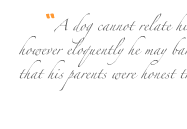| week 4, lab 3 (2/15) |
we had a lab session despite snow – charades day though. in this week's lab you invented your own pidgin. you gestured out given sentences and without speaking, whispering, fingerspelling etc. your teammates had to guess what it was you were trying to convey. we saw that some things were easier to convey than others and that there were some obstacles that took time to navigate around. most of you noticed that things you could point at or "act out" were generally easier to convey than less concrete parts of the sentences. one group for instance struggled for a while trying to find a way to express aspectual distinction and ended up using a way of guessing "through all the tenses" sharing their linguistic background knowledge. in general you employed a lot of "mind reading skills" and made use of what you expected to be common background. you said things like "i knew it had to be a pronoun rather than a name since you didn’t know who was going to be in our group, so you couldn’t have used a name." other people "gestured" symbols used in logic to convey the meanings of conjunction and disjunction. you also used "meta" gestures. all groups established a symbol for "not quite, keep on guessing", one group used a symbol for "try another place for the negation" to change what’s in the scope of negation. the fact that you share a language and got feedback in that language made the task considerably easier – you imported your knowledge of english and "cut things out" in the familiar way when it came to, for instance, tenses. i think most people shared the feeling that if you would have gone on in developing your gesture system, certain things that had worked would have been conventionalized, something that already happened to the symbol for past tense, or the "little, little bigger, big" symbol for the comparative/superlative morphology that one group invented. a few things that came up in discussion related to questions of whether there would be a most "natural" or easiest course of developing a pidgin. one question related to this was how easy it would be for a person from one group to switch over to another after a period of time. another question was whether some things were generally simpler than others, for instance whether it was generally easier to mention the "head" first and modifiers later. those questions are generally very hard to answer – when your investigating them, keep in mind the wide variety of language that you find.
|
| back |





